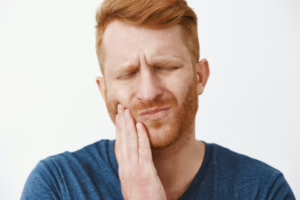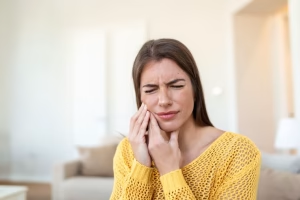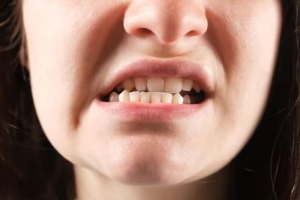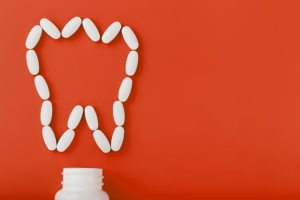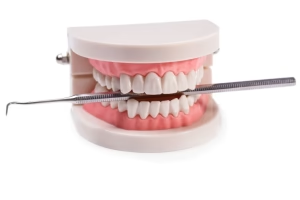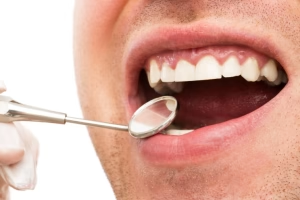Why Do All My Teeth Hurt Suddenly?
29 November 2021 | Updated: 2 November 2025

Imagine you’ve just made dinner and are ready to eat. You take your first bite and feel a sharp pain in your teeth. You ask yourself “Why do all my teeth hurt suddenly?”.
According to a survey published by American Family Physician, around 22% of adults have experienced pain in their teeth, gums, or jaw – reminding us why simple habits like brushing daily matter more than we think.
Common causes of sudden tooth pain include infected or cracked teeth, or increased tooth sensitivity linked to another dental issue. The good news is that most cases can be effectively treated by a dentist, who can also advise on how to prevent future discomfort and keep your oral health in top shape.
In this article, we’ll explore the common causes of sudden tooth pain and share expert insights to help you protect your smile.
What Can Cause All Your Teeth to Hurt Suddenly
Some typical reasons for abrupt tooth pain or a toothache may be due to problems like: sensitivity to hot or cold temperatures, decay in the tooth, periodontal disease, teeth grinding, or a broken dental filling. And if you experience pain at night, you can find out more here about how to manage nighttime tooth pain.
Listed below are 10 common triggers for tooth discomfort.
1. Exposure to Extremely Low or High Temperature Can Cause Tooth Pain

Sensitivity to hot or cold happens when your enamel of your teeth is eroded. The outer layer of the tooth, known as enamel, shields the underlying tissues. Once the enamel wears away, it exposes sensitive tissues with nerve endings. Teeth may become sensitive to hot and cold temperatures.
2. Tooth Cavities Or Tooth Decay
Tooth decay, also referred to as cavities, can be the reason behind unexpected toothache. Cavities may develop on your teeth without being detected for a period of time. The formation of tooth decay is due to bacteria on the teeth that generate acid and harm the enamel. As the cavity advances towards an infection, a sharp sensation of pain can be experienced in the tooth.
In case of any discomfort in one of your molars, we recommend visiting our blog for additional information about molar tooth pain. You should also avoid eating sugary foods to prevent bacteria that cause cavities from thriving on your teeth.
3. Sinusitis (sinus infection) can be a cause of toothache
The sinuses are a connected system of cavities in the skull. Sinus inflammation, also referred to as sinusitis, can sometimes be a cause of toothache. When the sinuses become inflamed and filled with pressure, they push the other tissues around them, including the tissues around the teeth that contain nerve endings that cause tooth pain.
Sinus infections can be treated with oral antibiotics that are prescribed by a medical doctor. In very extreme cases where sinus infections appear frequently, surgery is needed.
4. Receding Gums And Gum Disease Will make Teeth Hurt
The gums are the pink tissue in the mouth that help the teeth stay in place. Gum disease, also known as periodontitis, is a condition where the gums start receding. Gum disease can happen because of aging or physical trauma to the mouth or teeth. When the gums recede, the teeth are left exposed. This can increase the risk of even greater gum disease and tooth infections. The gum tissue that recedes will not grow back, but gum disease treatments can help to eliminate further recession and pain.
5. Infection of the Gums And Possible Causes
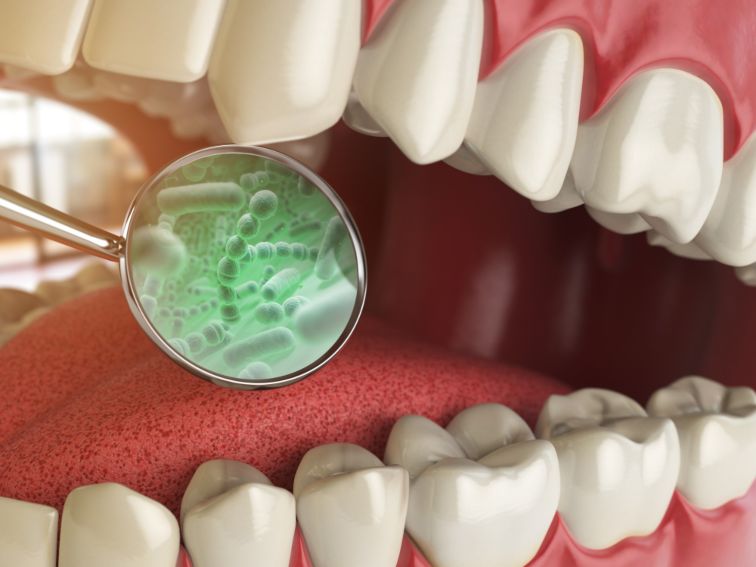
Gingivitis, also known as gum infection, is the initial phase of periodontal disease. Many individuals may have gingivitis without being aware of it. Common signs of gingivitis include gum sensitivity and bleeding. It is important to address gum infection promptly in order to prevent the advancement of gum disease.
6. Tooth Enamel Erosion and Sensitive Teeth
Enamel erosion can cause tooth sensitivity and pain. Erosion occurs when a person has a highly acidic diet, brushes too hard, or can even be a side effect of bulimia. Eroded enamel can’t be restored. Erosion can cause very sharp pain when biting.
7. Temporomandibular Joint Syndrome
Temporomandibular joint syndrome (TMJ) is a musculoskeletal condition that affects the jaw. The TMJ connects the lower jaw to the skull. People that have TMJ syndrome often experience sudden or severe pain in the jaw, ear or temple, but this pain can also radiate to the teeth.
Known symptoms of TMJ syndrome include:
- Clicking, popping or grinding sounds when closing the mouth
- Difficulty moving the jaw
- Jaw misalignment
- Head or jaw aches or migraine episodes
- Facial swelling
8. Crowded Teeth
Having crowded teeth can cause a lot of pain. Crowded teeth can only be painful in some areas or sometimes all the teeth can be painful. Some symptoms of crowded teeth can be crooked or overlapping teeth, pain when the wisdom teeth start coming through or changes in the teeth shape of the bite over time.
Crowded teeth can be treated either by wearing a retainer or a fixed brace that helps realign teeth. They can also be treated by removing one or more teeth to make more room in the mouth.
9. Bruxism – Tooth Grinding
Grinding your teeth and clenching jaw can result in long-term tooth sensitivity as it gradually wears down the enamel. While occasional teeth grinding may occur during stressful moments, frequent grinding can become a habitual behaviour leading to bruxism.
Those with bruxism may unknowingly grind their teeth regularly, and sometimes it can even happen while they are asleep.
10. Products for Teeth Bleaching Can Be A Cause Of Tooth Pain
Using teeth whitening products like bleaching gels and whitening strips, as well as getting professional whitening treatments from a dentist, can increase the likelihood of experiencing tooth sensitivity. However, this sensitivity is temporary and will only last for the duration of using the whitening products.
When Should You Make An Appointment And See a Dentist?
If your tooth pain is getting worse or won’t go away, it’s time to book an appointment with your dentist. What starts as mild sensitivity can quickly turn into something more serious and only a professional can pinpoint the exact cause. In some cases, a simple sensitivity-reducing toothpaste may help, but in others, treatment such as a white tooth filling or even an extraction might be needed.
Certain symptoms should never be ignored. If you experience any of the following, contact a dentist immediately:
- Throbbing or sharp pain that doesn’t go away
- Toothache lasting longer than 48 hours
- Fever occurring alongside tooth pain
- Headache or migraine that radiates to your teeth
If you’re based in Brisbane or the Gold Coast, the team at MGA Dental is available 7 days a week for emergency and general dental care. Whether it’s sudden pain, swelling, or a persistent ache, you can count on MGA Dental’s experienced dentists to provide fast, effective, and compassionate care when you need it most.
Don’t wait for the pain to worsen – book your appointment today at MGA Dental clinic.



